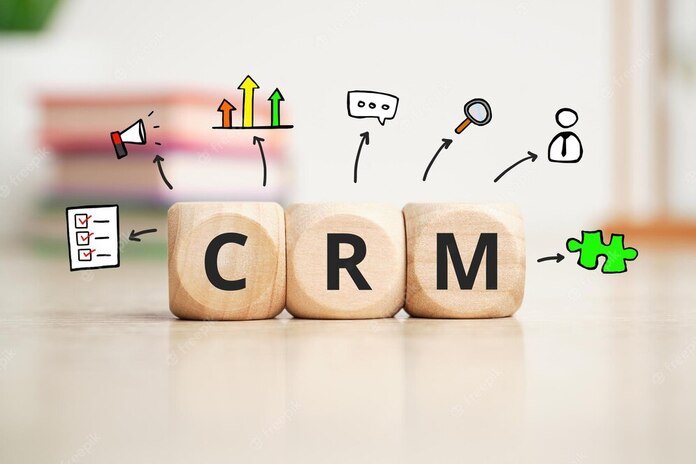Whether to buy CRM stock now depends on investor confidence in the new Salesforce (NYSE:CRM) — a big-cap software maker focused on profits rather than sales growth.
Rising corporate spending on digital transformation projects remains a plus for Salesforce stock. But the days of Salesforce making big acquisitions, such as its purchase of Slack Technologies, could be over.
Salesforce sells software under a subscription model. Its software helps businesses organize and handle sales operations and customer relationships. The company has expanded into marketing, e-commerce, and data analytics.
Salesforce Stock: Restructuring Plan
Despite slowing growth, CRM stock has gained over 24% so far in 2023.
Activist investor Elliott Management on Jan. 23 disclosed that it has taken a multibillion-dollar investment in Salesforce. Elliott Management joined the hedge fund Starboard Value in targeting CRM stock.
Other new activist investors in CRM stock include Third Point, ValueAct Capital, and Inclusive Capital.
Analysts say a potential proxy fight looms heading into the company’s annual shareholder meeting.
Starboard in October said it aims to help the company improve margins. Before Starboard surfaced, Salesforce had approved a $10 billion buyback for CRM stock.
Salesforce, on Jan. 4 said it will cut 10% of its workforce and reduce office space as part of a restructuring plan amid expectations that revenue growth will slow in fiscal 2024.
At RBC Capital, analyst Rishi Jaluria said Salesforce could divest its Slack, a maker of workplace collaboration software, or MuleSoft businesses amid pressure from activist investors.
CRM Stock: Co-CEO Structure Falters
Salesforce co-Chief Executive Bret Taylor recently departed amid other management changes. Taylor had been co-CEO for about one year. Marc Benioff remains the sole CEO of the company.
Taylor’s departure is the latest management shift for CRM stock. Salesforce on Aug. 8 announced the appointment of Brian Millham as president and chief operating officer. Gavin Patterson, who had been president and chief revenue officer, was shifted to chief strategy officer. Patterson left the company in early November. In addition, Stewart Butterfield, who headed the company’s Slack unit, will leave Salesforce.
Salesforce had a co-CEO structure earlier. But Keith Block, viewed as a possible successor to Benioff, stepped down as co-CEO in early 2020.
Salesforce stock retreated nearly 48% in 2022.
One issue for Salesforce stock is how software growth stocks are doing generally.
A closely watched software benchmark, the iShares Expanded Tech-Software ETF (IGV), fell more than 35% in 2022. The IGV index has climbed 11% in 2023.
Digital Transformation
Amid the coronavirus pandemic, demand for next-generation collaboration and productivity tools has increased. In addition, many companies aim to automate operations and track key business metrics in order to support employees working from home.
One view is that spending on digital transformation projects will continue to be strong as the Covid-19 emergency eases. Such projects turn paperwork into electronic records and automate business workflows. More companies are investing in business analytics and artificial intelligence tools that scrub customer data.
In addition, CRM stock could get a lift from U.S. federal information technology spending. The company recently unveiled “no-code” programming tools for the public sector.
Further, Salesforce has stepped up investments in low-code app development.
At an investor day in December 2020, Salesforce said it aims to double revenue to $50 billion by 2026, including a $4 billion contribution from Slack. At the same time, Salesforce stock lowered its organic revenue growth target to 19% from 20% over the next four years.
Raising The Bar On Buyouts
The bar keeps rising when investors look at Salesforce’s “biggest acquisition ever.”
Its purchase of Exact Target in 2013 was followed by the e-commerce platform Demandware in 2016, and MuleSoft in 2018. Last year, Salesforce (NYSE:CRM) ponied up $15.7 billion in an all-stock deal to buy data analytics firm Tableau Software.
Then came the Slack deal, which closed in July. Amid growing competition with Microsoft, Salesforce (NYSE:CRM) agreed to pay $27.7 billion for workplace collaboration software makers.
The upbeat view is that acquisitions have enabled Salesforce to expand from its roots in customer relationship management software into marketing, e-commerce, and other markets.
Salesforce is one of many big-cap tech stocks to watch. Starting in 1999, Salesforce went public in 2004. Benioff, who is also Salesforce’s founder, worked at Oracle for 13 years before he left to start the software company.
CRM stock in 2020 was added to the Dow Jones Industrial Average. Further, it replaced Exxon Mobil (XOM) in the 30-stock benchmark. Meanwhile, CRM stock belongs to the IBD Long-Term Leaders list.
The Threat From Rivals
Salesforce faces some formidable competition. Microsoft’s Dynamics has gained traction as a lower-priced alternative to Salesforce tools, some analysts say. In addition, Microsoft is putting more salespeople behind the Dynamics business.
Also, Salesforce has been a fierce rival of Oracle (NYSE:ORCL). And competition with Adobe Systems (NASDAQ:ADBE), the digital media and marketing software firm, has been rising.
Newer rivals include Zendesk (NYSE:ZEN) and HubSpot (HUBS). And Twilio (NYSE:TWLO) has jumped into customer relationship management software with an acquisition.
The customers of software-as-a-service, or SaaS, companies like Salesforce purchase renewable subscriptions, rather than one-time software licenses. Customers receive automatic software updates via the web.
Also, the company spends about 14% of its revenue on research and development, relatively high for a software company. Increased hiring and wage inflation for software engineers also have been a headwind to margin growth.
Fundamental Analysis
Including Slack Technologies, acquired in 2021, Salesforce’s (NYSE:CRM) third-quarter earnings rose 10% to $1.40 on an adjusted basis. Revenue climbed 14% to $7.84 billion.
Also, analysts expected Salesforce to report earnings of $1.22 a share on sales of $7.83 billion.
The enterprise software maker said current remaining performance obligations, known as CRPO bookings, rose 11% to $20.9 billion versus estimates of $21 billion. CRPO bookings are an aggregate of deferred revenue and order backlog.
For the current quarter ending in January, the company forecast earnings per share in a range of $1.35 to $1.37 vs. estimates of $1.34 a share for CRM stock.
Also, the software maker expects revenue of $7.98 billion at the midpoint of guidance, vs. estimates of $8.03 billion.
Salesforce Builds Artificial Intelligence Platform
One technology that Salesforce hopes will drive more revenue is artificial intelligence. The enterprise software maker introduced its “Einstein” AI software cloud platform in September 2016. The first Einstein AI software tools helped salespeople predict which deals are most likely to close based on a company’s historical lead and account data.
In addition, Salesforce has integrated AI tools into other enterprise software offerings over the past three years, targeting industries such as financial services in digital transformation. Einstein AI primarily works via chatbots.
On its first-quarter earnings call, Salesforce said its customers were generating more than 164 billion Einstein predictions per day, up from 100 billion a year earlier. But Salesforce has yet to disclose financial metrics on how much revenue the Einstein AI platform generates, directly or indirectly.
Salesforce, in 2019, agreed to buy data analytics firm Tableau for $15.7 billion in an all-stock deal. Tableau provides data visualization software. In addition, it enables customers to build databases, graphs, and maps using time series analytics, a technique that analyzes a series of data points ordered in time.
Also, Salesforce expects synergy between its Einstein artificial intelligence tools and Tableau’s business intelligence software. In 2021, Salesforce announced that it would rebrand Einstein Analytics as Tableau CRM.
Recent Acquisitions
In 2018, Salesforce bought MuleSoft for $6.5 billion in cash and stock. MuleSoft’s software automates the integration of new tools with legacy enterprise platforms and speeds up application development. MuleSoft’s business hit a bump in late 2021.
Meanwhile, Salesforce spent $4.6 billion on acquisitions in 2016. They included the e-commerce platform Demandware.
E-commerce has boomed amid the coronavirus pandemic. The shift to online shopping has provided a lift to Salesforce’s “Commerce Cloud,” which has its roots in Demandware purchases.
Furthermore, Salesforce’s $2.5 billion purchase of Exact Target in 2013 jump-started its move into marketing software.
Bullish analysts say Salesforce AI’s tools, plus Tableau and MuleSoft will make a powerful combination for digital transformation projects.
Further, Salesforce aims to partner with IT services firms such as Accenture (ACN) to add customers. Despite U.S.-China trade tensions, Salesforce has added Alibaba Group (BABA) as a sales channel partner in China.
Is Salesforce Stock A Buy?
In cloud computing, Salesforce has partnered with Google for data analytics. In addition, Salesforce has expanded its venture capital investing.
After forming a long cup base from September 2020 to September 2021, Salesforce stock hit an all-time high of 311.75 on Nov. 9, 2021. The stock pulled back in late 2021 as the software sector weakened.
According to IBD Stock Checkup, CRM stock currently has a Relative Strength Rating of 52 out of a best-possible 99. The best stocks tend to have ratings of 80 and above.
CRM stock holds an IBD Composite Rating of 73 out of the best possible 99.
IBD’s Composite Rating combines five separate proprietary ratings into one easy-to-use rating. The best growth stocks have a Composite Rating of 90 or better.
In addition, CRM stock has an Accumulation/Distribution Rating of B. The rating analyzes price and volume changes in stock over the past 13 weeks of trading. The rating, on an A+ to E scale, measures the institutional buying and selling of a stock. A+ signifies heavy institutional buying; E means heavy selling. Think of the C grade as neutral.
As of Feb. 20, Salesforce stock holds an entry point of 178.94. It trades about 8% below that entry point.
Featured Image: Freepik @ gesrey














